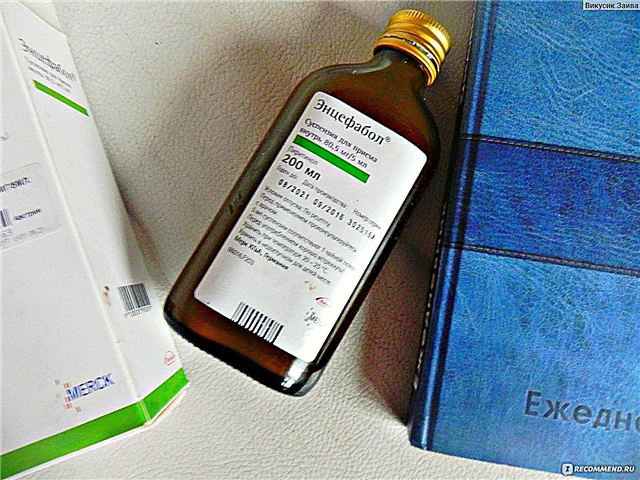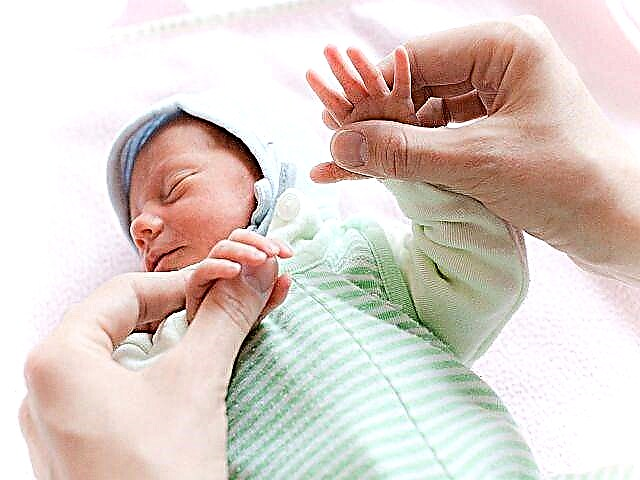When a child is sick, it is always dangerous, but there are symptoms that are critical for the baby's health, and if they occur, parents should immediately call an ambulance.
Young parents in relation to the health of their child are divided into two categories: some are shaking for their child and at every "sneeze" they call an ambulance, others, frivolous, moms and dads are in no hurry to see a doctor, hoping for advice from the Internet and folk remedies ... Both are wrong. There are significant signs of illness, indicating that it is time to call an ambulance, and every parent must know them.

Fainting
Loss of consciousness in a child looks frightening. The baby does not respond to the mother's voice, his breathing is quickened. In this case, immediately call an ambulance.
Fainting can be caused by severe emotional distress caused by worry or fear. For a long time being in a stuffy room, the child may lose consciousness. Fainting can be caused by the child's elementary hunger. There are also more serious reasons: heart rhythm disturbances, vegetative-vascular diseases, blood loss, infectious diseases. Fainting is often indicators of diabetes mellitus, epilepsy, concussion.
Parents should take seriously the after-fainting state of their children, be sure to conduct an examination in a children's clinic.
Fading
Freezing is a very serious symptom of epilepsy. In the minds of many, this disease is associated with repeated seizures, when a person beats in convulsions, foam appears from the mouth. But this disease can manifest itself in another way. The child may have a non-convulsive seizure. He seems to be turned off from reality: he suddenly freezes, looks with an absent gaze, his eyelids tremble. Some children close their eyes during an attack, throw their heads back. After 20-30 seconds, they return to their normal state, as if nothing had happened to them.

Some adults do not consider it necessary to call a doctor when they freeze, because the attack passes quickly and the child seems healthy. But everyone needs to know that freezing is an alarming symptom that indicates a serious illness.
Partial seizures
Partial seizures indicate epilepsy in childhood. They can manifest themselves in a mild form, when the child's consciousness is preserved, and in a complex one, accompanied by inappropriate behavior and confused consciousness. The unusual behavior is manifested in the fact that the child endlessly repeats the same movement or word, walks in a circle. These are symptoms of impending loss of consciousness. After the child comes to his senses, he cannot remember what happened to him.

How to distinguish between simple and complex forms of partial seizures? Try asking your child to perform the simplest action - raise your hand, sit down or stand up. If he responds to your request, then this is a simple form, if he does not hear anything, then it is complex.
You cannot be frivolous about any manifestation of partial seizures. These are the messengers of a serious illness, and the sooner you turn to medical specialists, the sooner treatment will begin.
Drastic weight loss
It often happens that a chubby, plump preschooler turns into a lanky skinny teenager. This is quite natural. But sometimes the child's thinness is striking, a sharp weight loss indicates that not everything is in order with his health.
Weight loss indicates serious illnesses such as
- acute infectious diseases;
- diabetes;
- bronchial asthma;
- gastrointestinal diseases;
- chronic infections;
- emotional upheaval;
- helminthic invasion, etc.
If you notice that your child is losing weight in front of his eyes, immediately contact the pediatrician who will schedule an examination. It is important to identify the disease at an early stage in order to start fighting it.
Fever, vomiting, headache
An increase in temperature, accompanied by severe headaches and vomiting, is an alarming signal for parents. These symptoms can provoke a strong emotional shock, i.e. physiological factor, but most often they indicate the onset of a serious illness of the child. High fever, vomiting, headaches are indicators of a viral or infectious disease, brain disease.
In what diseases does the temperature rise sharply, vomiting appears and the head hurts badly? These are signs that your child has one of the following conditions:
- Pyelonephritis. The temperature rises sharply to 39 °, the child becomes weak, lethargic, complains of headache and difficulty in painful urination.
- Appendicitis. Subfebrile temperature (37-37.5 °), severe vomiting, pain in the right lower abdomen. Try to bend your child's knees and then straighten them - the pain will intensify. Call an ambulance immediately, without waiting for peritonitis.
- Meningitis. A very dangerous infectious disease that affects the brain. Signs: high fever, unbearable headache, muscle and joint pain, vomiting.
- Intestinal infection. It can pass without an increase in temperature, but the danger is that due to unstoppable vomiting and diarrhea dehydration occurs, which can lead to loss of consciousness.
- Furunculosis - purulent inflammation on the skin, in its advanced stage leads to high fever, vomiting, headaches.
- Concussion. It occurs after severe head injuries, which teenagers do not always inform their parents about. If there are signs of vomiting, headaches and fever, you need to ask the child if he has had a head injury.
- Malignant and benign neoplasms.
There are many symptoms of severe illness in a child. Parents must remember that they are responsible for the health of their child, they have no right to take lightly his condition. We have indicated only a few signs when you need to call an ambulance and call a doctor. It is better to extinguish the disease in the initial stages, not to let it drag on for a long time.



